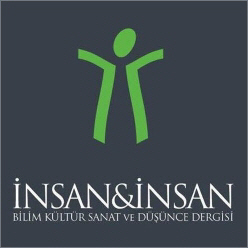Issue 34
Topic: Political Parties and Elections in Turkey
Issue Editor: Prof. Dr. H. Emre Bağce
Release Date: October 2022
Submission Date:
Start: 1 July 2022
End: 15 July 2022
As in the world, the issue of democracy in Turkey is one of the main topics of discussion in terms of theory and practice. Representative democracy, which is the common form of democracy in the modern era – also called constitutional or liberal democracy – is experiencing serious crises of legitimacy and representation around the world today.
Although political parties and elections have existed in Turkish political life since the last periods of the Ottoman Empire, except for short interruptions, it seems difficult to talk about a well-established democratic structure, political party tradition and an electoral system in Turkey. Democratic institutionalization in Turkey is weak; although democracy, political parties and elections are used as popular concepts, their quality and contents are not adequately discussed. As a populist discourse in the Constitution and other political/legal texts, political parties are described as indispensable element of democracy, but the participation of citizens in decisions and processes of public affairs, and balance and control mechanisms are not adequately expressed. In electoral laws, thresholds that seriously undermine fairness in representation continue to exist; the system of political parties, on the other hand, is built around the leaders in a way that produces a leadership dominion.
In the 34th issue of the Journal of Insan ve Insan, we aim to deal with the issue of political parties and elections as main elements of representative democracy. In order to determine where Turkey stands in terms of democracy, we want to take a picture of the political parties and elections from the past to the present, and make an inventory and analysis of the gains and losses, strengths and weaknesses by measuring from different angles. Thus, we think that together with the problems, possible solutions will be identified and suggestions can be developed.
#1 Why has not a well-functioning, institutional democracy been fully possible in Turkey from past to present? How does this relate to political parties and general/local electoral systems?
#2 To what extent do political parties, together with their members and voters, act in the common interest of the society? What are the structural and ethical problems that negatively affect the functioning of political parties and elections in terms of democratic principles, norms and values? What are the antidemocratic elements in political parties and electoral systems? How can an institutional, structural and ethical environment be possible to reverse the structural and ethical problems of political parties and elections?
#3 How does the voter profile in Turkey transform over time? Do public institutions, as well as civil society and political parties, adequately inform and support society (citizens, voters) so that they can make sound decisions among alternatives and participate in public decisions and affairs? If there are deficiencies, what are the causes and consequences?
#4 What is the legal and ethical view of the opportunities and aids provided to political parties in Turkey? What are the legal and constitutional basis of aid to political parties and its consequences for democracy? To what extent do political parties develop a position and policy that will increase democratic legitimacy regarding financial aid and revenues provided to political parties?
#5 What kind of reforms can be made regarding political parties and electoral systems, and what kind of solutions can be developed for an established (institutional) democratic life with high legitimacy in Turkey?
- Historical and socio-cultural framework:
– The political culture and democracy in Turkey and the question of justice in representation
– Status of political parties and citizens in terms of their democratic roles, substitution of political parties for citizens
– Past, present and future of political parties in Turkey (Ottoman and Republican periods, multi-party period, Cold War period and aftermaths)
– Democracy mentality of political parties - Political parties and electoral systems in the history of Turkish democracy:
– The laws on political parties and elections
– The approach of political parties, academia and different segments of society towards political parties and electoral systems
– Decisions and approach of the Constitutional Court on political parties and electoral systems
– General and local election thresholds, the approach of political actors, institutions and society towards thresholds - Power-opposition relations among political parties in Turkey:
– Coalitions, alliances and electoral collaborations among political parties
– Political parties and elections in crises, coups, and political polarizations - The manifestation of the antidemocratic mindset in (ruling or opposition) political parties in Turkey:
– Cartel party system?
– Leadership dominion, its causes and consequences
– Sandıkçılık* or electoralism - Suggestions and prospects for political parties and elections in Turkey
We are waiting for original and objective studies that are suitable for the spirit and scope of this issue, and contribute to the academic literature for the 34th issue of the Journal of İnsan ve İnsan, titled “Political Parties and Elections in Turkey”.
Prof. Dr. H. Emre Bağce
Issue Editor
P.S.: The manuscripts should be prepared in accordance with the Journal’s Ethical Principles and Publication Policy, and Writing Rules.
